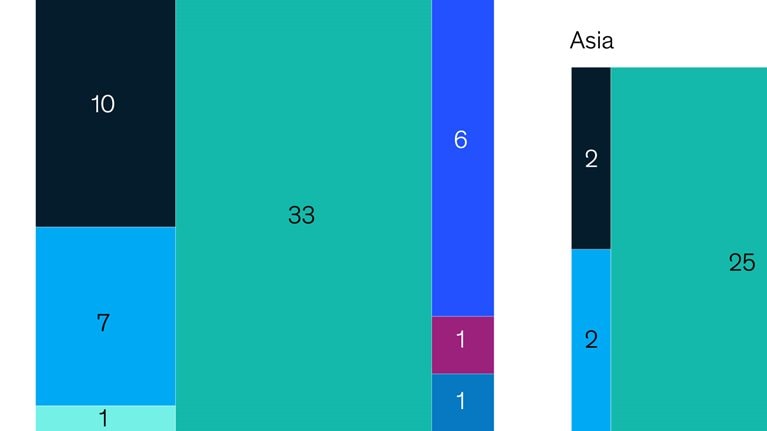Human influences on the environment continue to grow. Many of the resulting risks are continuously generating disease and injuries, impacting quality of life, reducing productivity, and weighing on health systems.1
The reduction of environmental pollution and advancements in hygiene have contributed significantly to the increase in human health and life expectancy over the last 150 years, particularly in high-income countries.2 But even today, contaminated water, food, and air remain major causes for suffering and death globally. Many of these problems are expected to be worsened by the ongoing climate change. Healthcare systems need to adapt significantly to a future in which gradual warming and extreme weather events will increase the risks to human health.
Climate change is linked to a number of health-related risks, including injuries caused by storms or flooding, the spreading of insect-borne infectious diseases, and the worsening of chronic respiratory, cardiovascular, and kidney disease.3 In addition, extreme weather events, gradual warming, and changes in humidity indirectly affect human health by disrupting healthcare delivery and endangering food security.4,5 Even in high income countries, the negative health effects of climate change will be more severe for disadvantaged populations, and this impact is expected to deepen existing gaps in health equity.6
There is an opportunity for more countries to develop national climate adaptation plans with a health focus, and for both the public and private sector to invest more in health-related adaptation financing.7 The challenges related to adaptation will be even greater for low- and middle-income countries, which are already facing the largest health burden today. Their current response is often impaired by less robust healthcare systems, and they have limited resources to build long-term resilience.8
Understanding the intersection of climate change mitigation and human health is important for effective action in both areas. Healthcare systems are major emitters of carbon dioxide and other environmental pollutants.9 Mitigation of further environmental and climate change will thus have to involve efforts to reduce the footprint of healthcare providers and healthcare industries around the world. At the same time, there is significant potential for synergy between the advancement of human health and climate change mitigation. The concept of a “planetary health diet” illustrates this as it captures both promoting individual health via better nutrition and reduced environmental pollution from a transformation of food production.10


